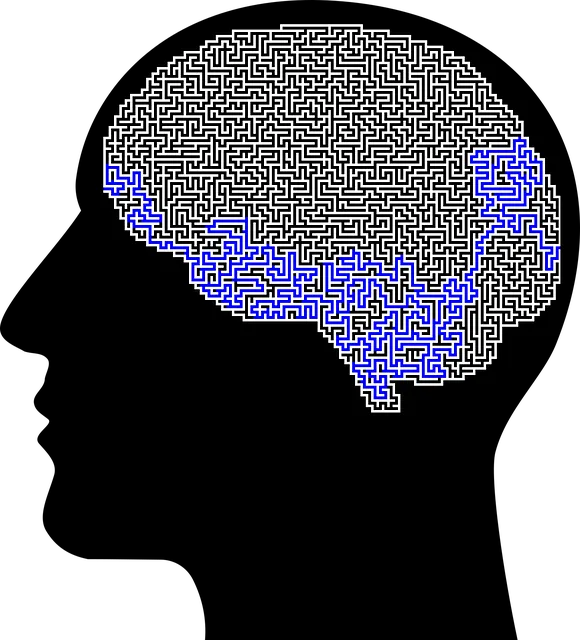Community Outreach Programs at Kaiser Permanente in Lafayette have significantly improved mental wellness through crisis intervention, social skills training, and mental wellness coaching. Integrated behavioral health services, guided by Mind Over Matter principles, foster holistic healing and address both physical and emotional well-being. Evaluating their success requires a mix of quantitative and qualitative assessments, focusing on participant feedback and long-term impacts. Innovative strategies, like Compassion Cultivation Practices, build trust and encourage positive behavioral changes. In the digital age, Kaiser Permanente Lafayette uses data analytics and feedback to tailor services, reduce stigma, and promote early intervention in mental health care.
Community outreach programs play a pivotal role in promoting behavioral health, bridging the gap between healthcare services and those who need them most. This article delves into the significance of these initiatives, highlighting successful models like Kaiser Permanente Lafayette’s integrated care approach. We explore key strategies and best practices through case studies, and discuss how to measure their impact on mental health outcomes, particularly through comprehensive behavioral health services reviews. Focusing on real-world examples, such as the Kaiser Permanente Lafayette model, this guide offers valuable insights for expanding community engagement in mental healthcare.
- Understanding Community Outreach Programs: Their Role in Behavioral Health
- Kaiser Permanente Lafayette: A Model for Integrated Care
- Evaluating Success: Behavioral Health Services Reviews
- Implementing Effective Outreach Strategies: Best Practices and Case Studies
- Measuring Impact: The Future of Community Engagement in Mental Health
Understanding Community Outreach Programs: Their Role in Behavioral Health

Community Outreach Programs play a pivotal role in promoting and enhancing Kaiser Permanente behavioral health services, as evidenced in reviews from Lafayette. These initiatives are designed to bridge the gap between healthcare providers and underserved communities, ensuring that mental wellness coaching programs and social skills training become accessible to all. By implementing crisis intervention guidance tailored to local needs, these programs foster an environment where individuals can receive support and develop resilience.
Through proactive engagement, community outreach extends the reach of behavioral health services beyond traditional clinics. It empowers folks by providing education, resources, and skills necessary for maintaining and improving mental well-being. This inclusive approach not only addresses immediate concerns but also promotes long-term stability, making communities stronger and more resilient overall.
Kaiser Permanente Lafayette: A Model for Integrated Care

Kaiser Permanente Lafayette stands as a beacon for integrated care, seamlessly blending medical and behavioral health services. This innovative model has garnered significant attention, especially in the realm of mental health education programs design. By integrating behavioral health services into primary care settings, Kaiser Permanente Lafayette promotes holistic healing, addressing both physical and emotional well-being. The approach leverages Mind Over Matter principles to foster emotional healing processes, enhancing patient outcomes and overall satisfaction.
Through comprehensive programs that prioritize prevention and early intervention, Kaiser Permanente Lafayette ensures accessible and effective mental health support. Their reviews highlight a significant positive impact on communities, demonstrating the power of integrated care in transforming lives. By fostering open conversations about mental health and implementing evidence-based practices, this healthcare provider sets a standard for delivering compassionate and coordinated care.
Evaluating Success: Behavioral Health Services Reviews

Evaluating the success of community outreach programs, especially those focused on Kaiser Permanente behavioral health services reviews in Lafayette, involves a comprehensive look at their impact on mental health within the local community. Beyond quantifiable metrics like attendance and satisfaction rates, qualitative assessments are crucial to understand the long-term effects. This includes gathering feedback from participants about how these programs have influenced their mental wellness. For instance, many individuals may report improved coping mechanisms, enhanced social connections, and increased access to resources thanks to initiatives like Mental Health Education Programs Design, Compassion Cultivation Practices, and Mental Wellness Podcast Series Production.
By examining these reviews, community leaders can identify the most effective strategies for promoting mental health awareness and cultivate best practices that resonate with local needs. This data-driven approach ensures that behavioral health services remain relevant, accessible, and tailored to address the unique challenges faced by Lafayette residents. Ultimately, regular Kaiser Permanente behavioral health services reviews serve as a compass, guiding community outreach programs toward greater success and fostering a more compassionate and resilient environment.
Implementing Effective Outreach Strategies: Best Practices and Case Studies

Implementing effective outreach strategies is a cornerstone of successful community engagement, particularly when focusing on sensitive areas like behavioral health services. Organizations like Kaiser Permanente have leveraged innovative approaches to reach diverse populations in communities such as Lafayette. One standout practice is integrating Compassion Cultivation Practices into their community outreach programs. This involves training volunteers and staff to foster empathy, compassion, and resilience within the community, thereby improving mental health outcomes.
Case studies from Lafayette demonstrate that these strategies significantly enhance access to behavioral health services. By incorporating stress management techniques and tailoring interventions to local needs, organizations can create a sense of belonging and trust. This personalized approach not only encourages participation in outreach programs but also fosters long-term positive behavioral changes. Effective community outreach program implementation is thus not just about reaching people; it’s about understanding them and providing solutions that resonate with their unique circumstances.
Measuring Impact: The Future of Community Engagement in Mental Health

In today’s digital era, measuring the impact of community outreach programs has become more crucial than ever, especially in mental health initiatives. Organizations like Kaiser Permanente behavioral health services reviews Lafayette have pioneered innovative approaches to assess and enhance community engagement. By incorporating advanced data analytics and feedback mechanisms, these programs can track their effectiveness, identifying areas for improvement and ensuring that services are tailored to the unique needs of diverse populations.
This forward-thinking strategy not only improves access to mental healthcare but also promotes cultural sensitivity in mental healthcare practice. Mental health education programs designed with a focus on community engagement aim to reduce stigma, foster trust, and encourage early intervention. Additionally, burnout prevention strategies for healthcare providers are integrated into these initiatives, ensuring that those who dedicate their lives to serving others remain motivated and resilient.
Community outreach programs, as demonstrated by Kaiser Permanente Lafayette’s integrated care model, play a pivotal role in enhancing behavioral health services. Through innovative strategies and effective measurement practices, these initiatives ensure that mental healthcare becomes more accessible and impactful. The success of such programs, highlighted by comprehensive Kaiser Permanente behavioral health services reviews for Lafayette, underscores their potential to revolutionize community engagement in mental health. By adopting best practices and learning from case studies, future outreach efforts can continue to foster positive change and improve overall well-being.






